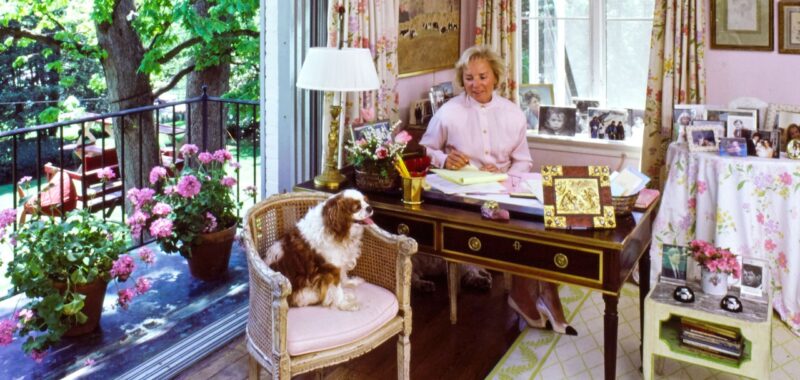Ethel Kennedy, human rights advocate and widow of Senator Robert F. Kennedy, died on October 10, 2024, at the age of 96. She founded the Robert F. Kennedy Center for Justice and Human Rights shortly after her husbandâs 1968 assassination and was known as a champion of social causes. Her dedication earned her the Presidential Medal of Freedom in 2014.
Born the sixth of seven children in Chicago in 1928, Ethel grew up in a 31-room, English-country-style manor in Greenwich, Connecticut. Her father, coal magnate George Skakel, was a self-made millionaire, and her mother, Ann, was a secretary. Ethel married Robert F. Kennedy in 1950. The couple shared 11 children: Kathleen, Joseph II, Robert Jr., David, Courtney, Michael, Kerry, Christopher, Max, Douglas, and Rory. Six years after they wed, the two bought Hickory Hill, a stately white brick house in McLean, Virginia, from Robertâs brother John F. Kennedy and his wife, Jacqueline Kennedy. The 13-bedroom home remained under Ethelâs ownership until 2009; her seasonal home at the Kennedy compound in Hyannis Port, Massachusetts, where her large family congregated every summer, became her primary dwelling. She is survived by nine children, 34 grandchildren, and 24-great-grandchildren.
âShe has had a great summer and transition into fall,â a family statement published by NPR said of the late human rights activist. âEvery day she enjoyed time with her children, nieces, nephews, grandchildren, and great-grandchildren. She was able to get out on the water, visit the pier, and enjoy many lunches and dinners with family.â
Read on to revisit Ethel Kennedyâs iconic homes in Virginia and Massachusetts, both of which Architectural Digest toured.âKatie Schultz
This article originally appeared in the August 1987 issue of Architectural Digest.
The summer of 1986 marked another turning point in the life of Ethel Kennedy. Her oldest daughter, Kathleen Kennedy Townsend, was running for Congress in Maryland and her oldest son, Joseph P. Kennedy III, was campaigning for Tip OâNeillâs congressional seat in Massachusetts.
Ethel Kennedy threw herself energetically into both campaigns, a role she hadnât played since the late 1960s. Kathleen Kennedy Townsend recalls the reaction her mother got. âThe whole staff was amazed. At fundraisers, she instinctively noticed the few people who were undecided and would go up to them and charm them. Without question, she is the best campaigner I’ve ever seen.â

